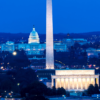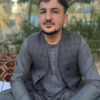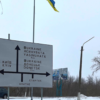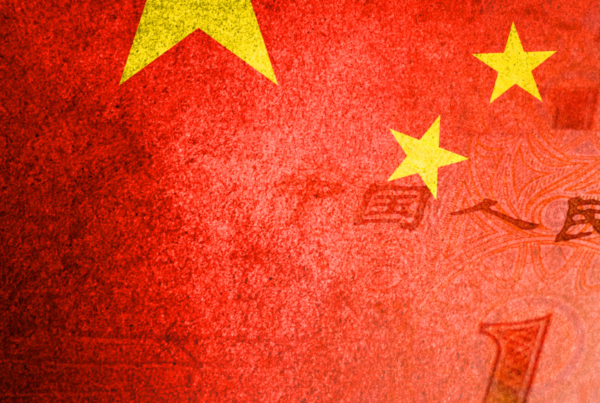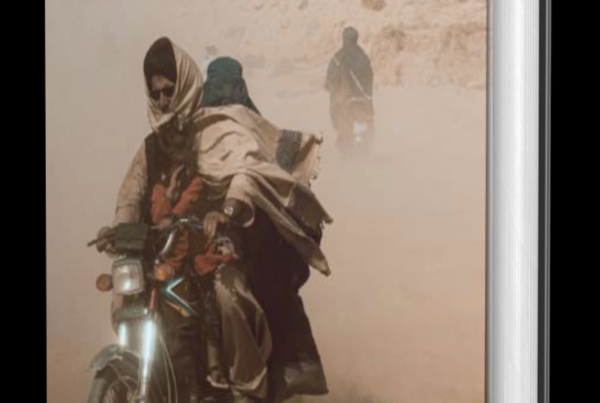KHOST, Afghanistan – After hours twisting and bumping in a cramped Toyota Corolla through the mountains of Afghanistan’s southeastern corner, past the maze of mud-walled dwellings and tiny, makeshift stores, I arrive unannounced at the Khost Governor’s Office: a sprawling slab of chipped buildings faded beneath the late morning light, staffed by dozens of rifle-wielding Taliban soldiers with weathered, curious faces.
To my surprise, given the challenge it has become for an on-the-record meeting with any prominent Taliban official, Khost Governor Mawlawi Mohammad Nabi Omari agrees to talk over tea. Eventually, I am ushered into his large office with polished wooden floors, large bouquets of plastic flowers and two hulking Islamic Emirate flags poised beside the large, barren desk.
“First of all, thank you for coming. You are always welcome here, you are our guest, and we will be treating you as our guest,” Omari, adorned in a traditional white Afghan dress with a black, white-striped turban, says flatly.
It’s a rare olive branch from the Taliban, who have grown increasingly weary and bitter toward foreign journalists, their perception of outside media largely eroded under their own iron fist.
The Taliban Senior and Khost native, around 54 years old, speaks softly and carefully, never quite looking me (as a woman) directly in the eye. Still, Omari carries a particular mystique with unique resonance to the American taxpayer and warfighter. After all, he was one of the eponymous “Gitmo Five,” released from the controversial Cuban detention facility in an Obama-era trade for U.S. Army deserter Bowe Bergdahl.
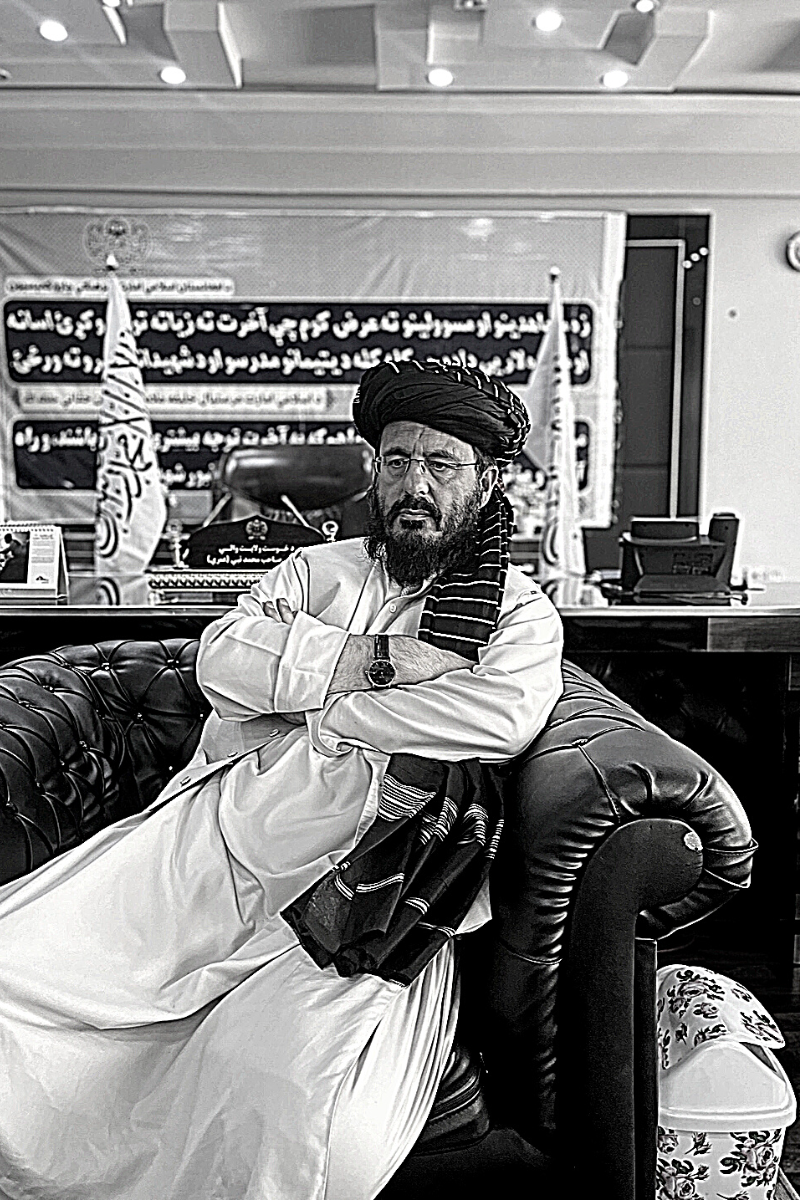
I ask about the most significant change in governance between the crippled Islamic Republic and the newfangled Islamic Emirate, aka the Taliban.
“The biggest thing we have now is that there is no kidnapping, no killing, no terrorizing people or bombarding them from the air,” Omari insists. “That is the biggest change Khost has seen. Everyone is busy with their daily life.”
Omari doesn’t miss a beat, eager to speak.
“If there is anything on your mind,” he stresses. “We can discuss it.”
Nevertheless, I don’t have to raise the Guantanamo Bay issue myself; Omari quickly brings up his many years of extrajudicial detention under the Internment Serial Number 832. He underscores that the treatment he received was so heinous that people frequently advise him to write a book.
“But if we did, for years or months, people would keep crying because that was the treatment,” Omari continues, his voice empty of inflection or emotion. “You cannot even imagine it; how difficult it was.”
The impact more than two decades since the saga began is still visceral, Omari surmises.
“Even if I see something made by Americans,” he says, gesturing offhandedly to the table. “I hate it.”
The local leader arrived at JTF-GTMO on October 28, 2002, accused by U.S. officials of being “a member of a joint al Qaeda/Taliban” cell in Khost province, which was “involved in attacks against U.S. and Coalition forces.” But from Omari’s lens, he tells me in 2002 he was invited by the Americans to meet at a local airport to discuss “how the area can be secured, and the problems solved.”
Yet when he arrived, he says, he was apprehended by American forces and initially taken to Bagram prison before relocation to Gitmo.
“I was there for thirteen years. Even after I was detained, they (Americans) raided my home seven times. (Aside from the women) all the boys were put into prison,” Omari claims. “Why did they do that? They had a problem with me, but why (do this) to my family?”
The U.S. government at the time of Omari’s detainment also emphasized Omari’s close ties to the notorious Haqqani Network, which also hails from the historically rebellion-rich province and long conducted covert operations deep inside their historical stronghold of Loya-Paktia, which subsumes the provinces of Khost, Paktia and Paktika in southeastern Afghanistan, before re-emerging into the public light following the Taliban’s government return.
Incidentally, however, it was the Haqqani outfit who held Bergdahl captive for some five years. Then suddenly, on June 1, 2014, Omari and four other men dubbed the Gitmo or Taliban Five were transported from the island to Qatar, where they were forced to remain on a loose form of hour arrest before being set free to return to the Taliban fold.
Moreover, Omari emerged as a critical figure in the “Doha talks,” which eventually led to America’s complete, albeit chaotic, withdrawal from the country in the late summer of 2021 and the abrupt ascendance of the Taliban to power after two decades of constant war. His son, Abdul Haq Omari, was killed on the battlefields of Khost in July 2021 amid the sunset days of the U.S.-backed government.
Nevertheless, drawing upon the memory of August 15, 2021 – the day signaling the triumphant return for the Taliban and painful fear and defeat for those opposed to their return – is the only time I observe Omari’s face ever so slightly shifting into something of an expression.
“It was a big, happy moment for us, that we are in our own regime for our own country and our own people, and we can serve our people,” Omari declares.
That victory was commemorated in more ways than one.
When I first visited Khost a year earlier, just weeks after the Taliban takeover and Omari’s appointment to the Governorship, a giant billboard rising from a cracked and dusty field as I drove into the provincial capital of the same name caught my eye. It featured a slumped, depleted, and bruised Bergdahl alongside smiling Taliban leader Mullah Sangeen Fateh.
“Martyrs of religion, country and holy path are similar to shining stars of nations and world history whose names and actions can’t be drowned in monthly, annual, and decade oceans,” the Pashtun poem by Khalid Zadran read alongside the two contrasting faces.
The Bergdahl billboard in Khost seemed partly a gloating of the captured American but more so a tribute to Fateh, who was killed in 2013 by a U.S. drone strike and is remembered as a favorite leader among the Haqqani network.
And while Washington is yet to recognize the Taliban government formally, Omari sees the line of communication as a significant step toward the broader goal of establishing official ties. In fact, the lack of recognition by any government anywhere in the world (a handful of countries have special envoys or associations, but none have announced full recognition) is what Omari perceives as the “biggest challenge” Afghanistan is facing.
“Multiple times, we have announced that we want good relations with the rest of the world, and the rest of the world also wants that,” he explains. “But if they don’t follow through, it will be a big challenge for us and for the rest of the world too.”
I sit for a moment, thinking of all the ways such a phrase could be grasped. Yet, there is a strong sense that the United States still very much holds the fate of Afghanistan in its grasp and that whatever Washington decides, allies and adversaries alike will follow suit, for better or worse.
“Whatever America does, the others will follow. (But) relations are developing,” Omari hurriedly contends. “A good example is the exchange between Mark Frerichs and Hajji Bashir Noorzai. I cannot give you an exact date when (recognition) will happen. But in the near future, it will happen.”
Days earlier, the last known remaining U.S. citizen – U.S. Navy veteran turned civilian engineering contractor Mark Frerichs – was freed from Afghanistan in a prisoner exchange, having been abducted in Khost province in early 2020. The contractor was swapped for the storied Bashir Noorzai, known as Hajji Bashir, a convicted Afghan drug lord and early Taliban champion. He reportedly agreed to work as an undercover agent on the U.S. government’s behalf following six days of questioning and detainment in Kandahar in November 2001.
However, several years later, he was sanctioned under the Foreign Narcotics Kingpin Designation Act, having earned the reputation as the “Pablo Escobar of heroin trafficking in Asia,” allegedly lured to New York City by his handlers in the spring of 2005 and subsequently arrested by U.S. authorities in New York City. U.S. prosecutors claimed Noorzai supplied funds to the Taliban in a trade-off for allowing his drug empire to continue. In 2008, Noorzai sentenced to life behind bars in the United States.
“He (Noorzai) may continue doing his trades (now),” Omari predicts. “But I don’t think he will take (an official) government job.”
Meanwhile, Guantanamo Bay – which has seen the backs of dozens of Afghan detainees – now holds just one Afghan national, Muhammad Rahim, who is accused of being a close confidante of Osama bin Laden. The second last remaining Afghan, 39-year-old Asadullah Haroon, was handed over to Qatar in June in what Taliban top brass framed at the time as a “positive development” between the Emirate and Washington.
Omari, evidently the cautiously spoken diplomat, repeatedly indicates that acceptance from their once war theater enemy is the paramount priority. He points out that the “fundamental problem” is that “American have told their people that the Taliban are terrorists,” even when talking to them in the Doha office, creating a well of confusion for both the Taliban and the broader population.
Yet when it comes to diplomacy, Omari tells me that the past is the past, and he doesn’t let his own fraught Gitmo stay stain his desire to align with Washington.
“What I told you (about Gitmo) I told you from my heart. But the understanding between countries, that is different,” he asserts, using the example of America and China as “enemies,” yet having diplomatic ties and an understanding. “The understanding in relations we want with America is that they are not here (occupying) anymore, that they are coming with a political agenda and without tanks in place. We have relations with Russia and China and want the same with Americans.”
As I peep through the cracks in the blinds and out into the undulating mountains that border North Waziristan and Kurram, districts in Pakistan’s Khyber Pakhtunkhwa province, I cannot help but feel as though the cycle of bloodshed encrusted into the stoic Afghan history may only be momentarily halted, conjuring up the next evolution in the seemingly ceaseless cycle.
I raise the issue of Pakistan. It is a neighbor, but the once tight ties between the Taliban and Islamabad are fraying. Despite popular western analytical sentiment that Pakistani leaders and their evasive intelligence counterpart, the ISI, have long cozily controlled the former insurgency, there is a vivid sense that since the Emirate took the palace last August, they want to do away with all foreign meddling, the accord is on rocky terrain, and Pakistan isn’t getting the authority it perhaps thought it would.
“We are living next to each other, but I can’t say it (relations) are good because the Prime Minister now directly said that Afghanistan is a hub for terrorists. But it is not bad because people are going in (crossing borders) and coming back,” Omari notes.
Three days before my visit, while taking the podium at the 77th United Nations General Assembly in New York, Pakistan Prime Minister Shahbaz Sharif declared that “Pakistan shares the key concern of the international community regarding the threat posed by the major terrorist groups operating from Afghanistan especially ISIS-K and Takrik-e-Taliban Pakistan, as well as al-Qaeda ETIM and IMU.”
It drew instant rebuke by the Emirate.
“He’s a little big man, and he should not have talked about this. It is a very small topic that he brought up,” Omari says, wondering whether the PM was “forced” to make such a remark or on the hunt for more foreign aid. “The Emirate has advised him you should know your limits….”
Before I leave, Omari has a concluding memorandum he wants the world – most conspicuously Americans – to know. He pledges that Afghanistan is not housing terrorists, and they do not want to be an enemy.
“We don’t have beef with anybody. However, we request that (countries) respect our freedom and independence,” Omari adds. “This will be in the best interest of everyone around the world.”
Later that afternoon, while working deep into the Khost hinterlands that run alongside Waziristan, I am detained by a group of rogue Taliban fighters and later intelligence personnel. (More about this in an upcoming dispatch). Hours roll by, and the murky pink daylight hardens into starless darkness; I am transported through a maze of unpaved roads in an armored Taliban truck to a small shack, with my phone and passport and all other belongings confiscated.
Ironically, it is Omari who finally comes to my defense and demands that the Taliban release me immediately and that they provide food and accommodation at a nearby hotel (I decline the offer).
Exhausted, I can only surmise in my reporter’s notebook how wild, how ever-changing is this multi-faced world we only know as Afghanistan can be.
Maiwand Naweed contributed to this report.



